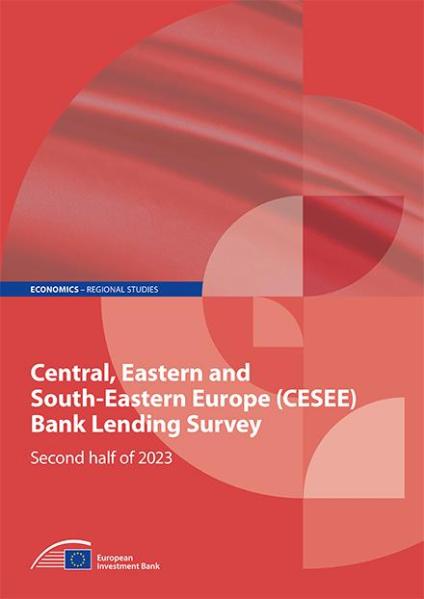
- The tightening of credit supply that began last year is not over, but the large supply-demand gap seen in previous periods is expected to diminish.
- A growing number of banks intend to selectively expand in the region, despite mentioning worsened profitability.
The European Investment Bank (EIB) Central, Eastern and South-Eastern Europe (CESEE) Bank Lending Survey for the second half of 2023 highlights a continued tightening of credit supply1 in the region. Credit supply is expected to remain weak or neutral in almost all countries (except for Albania). However, the large supply-demand gap of the last few years (when demand was resilient but supply tightened) is expected to diminish. Credit demand2 from bank clients has remained resilient and is expected to improve slightly. Fixed investments and retail, especially the housing market, contributed negatively, but fixed investments are expected to resume in the coming period. Contrary to previous negative expectations, credit quality improved over the last six months. However, given the weaker economic outlook and higher interest rates, banks again expect an increase in non-performing loans over the next six months.
Despite this, a growing number of banks express their intention to selectively expand their operations in the region (50%, up from 45% in the last round and 30% in the round before that) or maintain the same level of operations. Most regional subsidiaries have higher profitability than the overall group, in terms of return on assets and return on equity, especially in the Czech Republic, Kosovo3 and North Macedonia. However, their view on profitability has deteriorated significantly since the previous survey round, with more than 50% of banks now signalling lower profitability in various countries (Albania, Croatia, Hungary, Poland and Romania) compared to overall group operations.
EIB Vice-President Kyriacos Kakouris stated: “The survey findings indicate that the tightening of credit supply that began in 2022 because of the war in Ukraine, inflation, higher rates and economic slowdowns is still ongoing. All business segments have been affected by tight supply conditions, especially small and medium-sized enterprises. This is where EIB Global comes in. It will continue to provide favourable financing via financial intermediaries to help small businesses in the region to address their financial constraints, decarbonise, expend and create new jobs.”
EIB Chief Economist Debora Revoltella commented: “The survey is a vital tool for monitoring banking sector trends as well as the factors influencing credit standards and terms in the CESEE region. It enables us to understand the challenges faced by banks and provides valuable insights into the financing needs of companies and households. The findings will contribute to informed decision making and policy formulation.”
The survey, conducted by the European Investment Bank (EIB) in partnership with international and local banks, provides valuable insights into cross-border banking activities, credit growth determinants and market expectations. More information and country specifics can be found here.
1 Banks’ willingness to extend credit.
2 Clients’ willingness to borrow from banks.
3 This designation is without prejudice to positions on status and is in line with UNSCR 1244 and the ICJ opinion on Kosovo Declaration of Independence.
Background information
About the EIB
The European Investment Bank is the long-term lending institution of the European Union owned by its Member States. It provides finance and expertise for projects that contribute to EU objectives. The EIB Group works closely with public and private-sector partners to support sustainable investment, job creation, economic growth and innovation across Europe.
About the EIB CESEE bank lending survey
The EIB CESEE bank lending survey is a survey carried out every six months, polling around 15 international banking groups and 85 local subsidiaries or independent local banks in Central, Eastern and South-Eastern Europe. It collects information on credit standards, terms and conditions as well as various domestic and international factors that may be responsible for changes in lending. Demand for loans is also examined. The survey includes specific questions on credit quality and funding conditions for banks. It is designed to build a panel of observations that can provide an almost real-time assessment of the current state of the banking sector in the CESEE region. The survey is developed and managed by the EIB Economics Department and is part of a series of reports produced alongside the European Bank for Reconstruction and Development (EBRD), the International Monetary Fund (IMF) and the World Bank for the Vienna Initiative.
Local versions: